Today is Altera Innovators Day 2024, a big deal for the company as it looks to forge its identity. Altera is preparing to spin off from its parent Intel, a move that Intel renewed focus on last week. As part of that, the company is making a new effort toward its developer community and announcing Agilex 3.
Altera Starts to Chart its Own Course
The quick story is that the company is now focusing on increasing its product competitiveness for a stand-alone future in 2025.
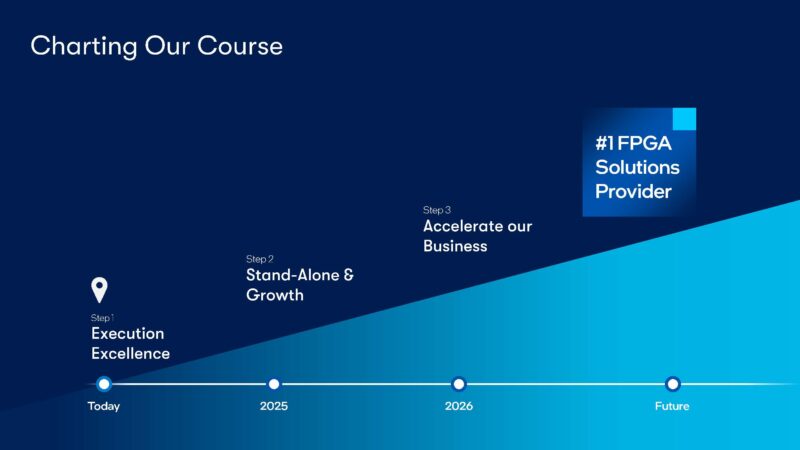
Altera’s goal is to be an independent FPGA vendor, but to be fair, it is still an Intel company for now.
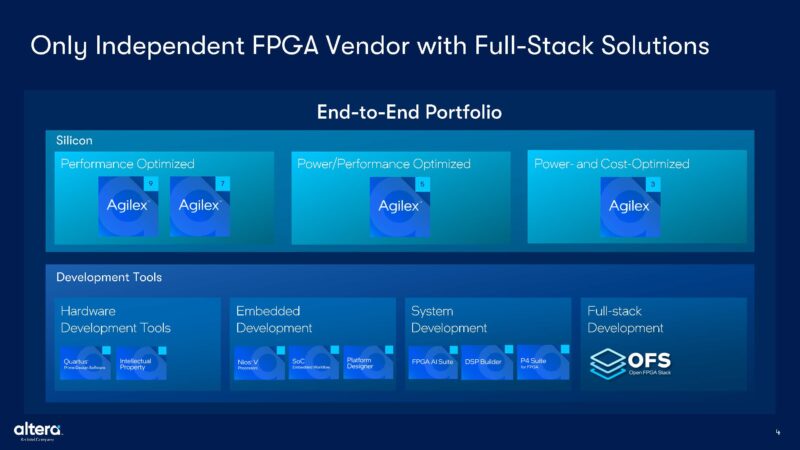
This is a fun slide since it says that Altera is focusing on Power/ Cost Optimized Edge and High-Performance Data Center applications. Power Optimized Data Center and High-Performance Edge are not key vectors. That is fun since we saw an Altera FPGA for Intel PFR in the MiTAC High-End Liquid Cooled 2U 4-node server we just reviewed. That FPGA is not designed to be a high-performance data center FPGA.
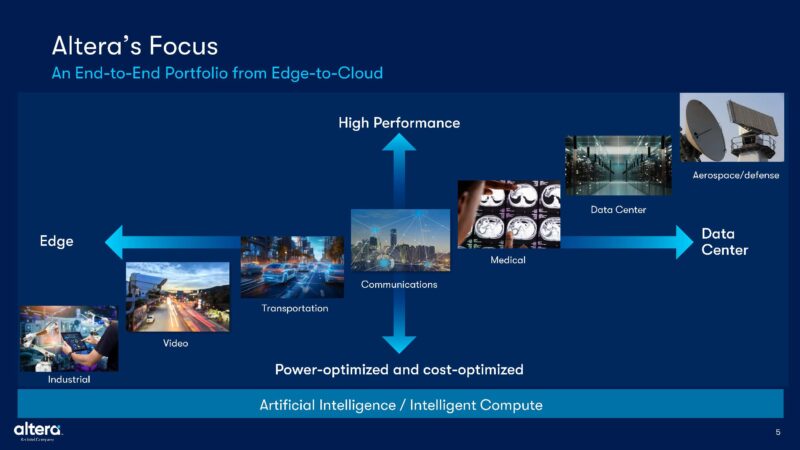
Aside from the strategy, we got new Altera Agilex 3 product details.
Altera Agilex 3
Altera says that Agilex 3 will be in-production in mid-2025.
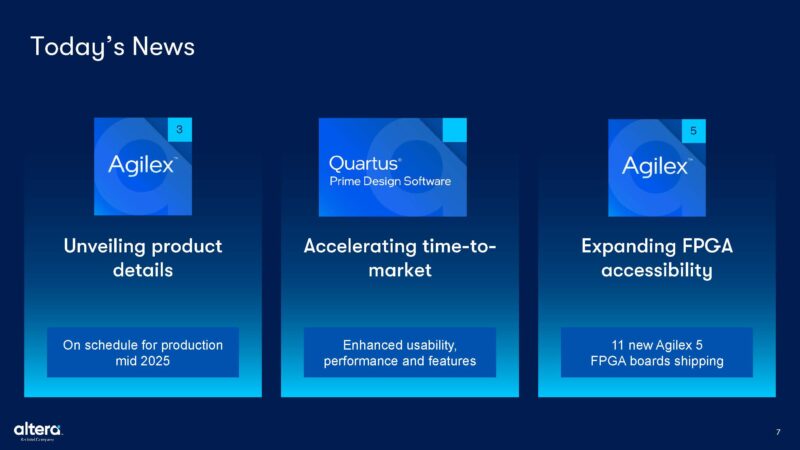
Altera will bring new dual Cortex A55 Arm processors and AI to Agilex 3.
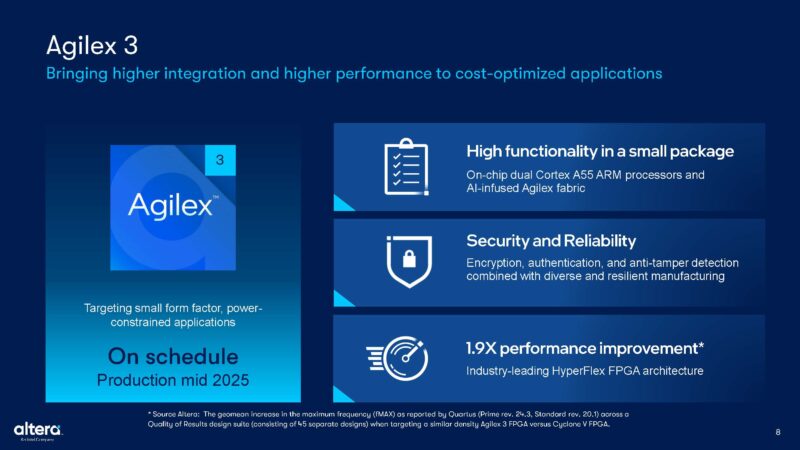
This all sounds neat, but it will be great to get more on the Agilex 3 specs and capabilities when that time comes.
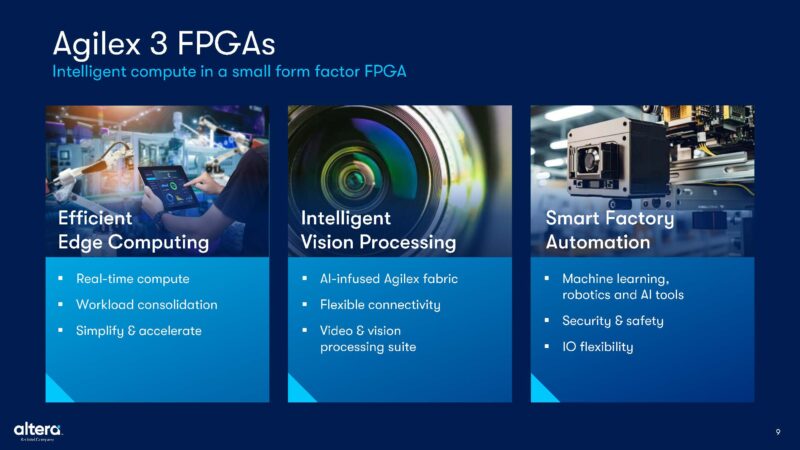
Since Altera Innovators Day 2024 is for the company’s ecosystem partners, the new Quartus Prime Software is a focus including support for new Agilex 5 D-series FPGAs.
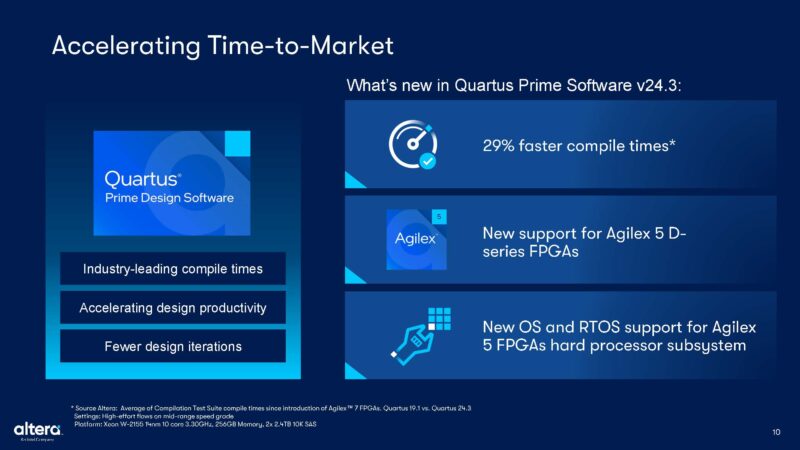
Altera says that there are 11 new Agilex 4 development kits and SoMs.
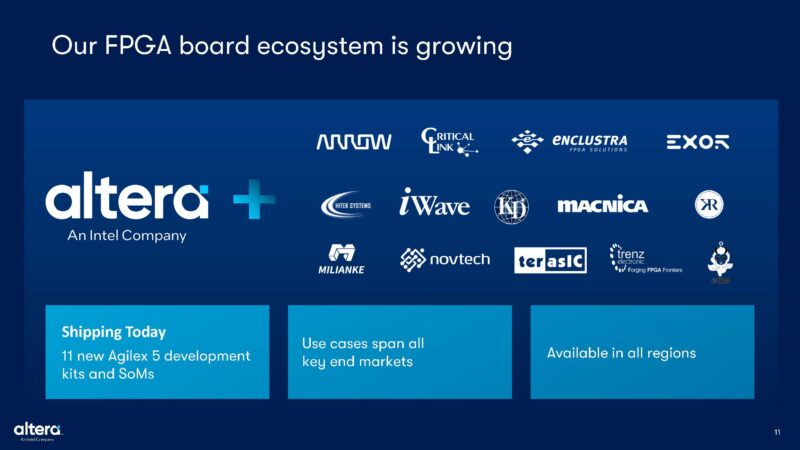
I asked Sandra Rivera, Altera’s CEO, on a pre-brief fall about plans to build more boards like the Intel Big Spring Canyon, Intel PAC N3000, or various Xilinx Kria or Alveo products. She said that Altera would focus on its ecosystem partners providing boards instead of Altera making boards directly.
Final Words
Altera is a large FPGA business. The exciting aspect is whether Altera, operating independently, can outpace AMD (Xilinx) in FPGAs. There is one school of thought that AMD operates under where one big company can service all markets. An alternative view is that selling big data center, AI drives so much of AMD that the FPGA business will become a lower priority within the company for incremental investment dollars. Execution also matters, so it will be interesting to see how Altera does going forward.
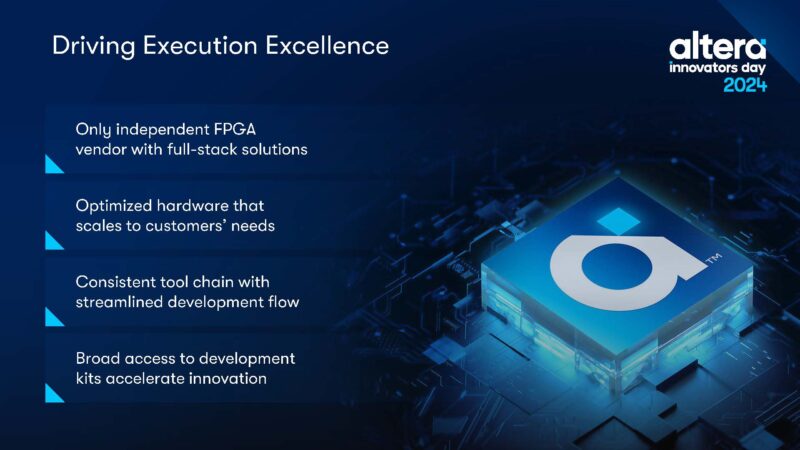
Of course, the subtext of today’s Altera announcement is that Intel has some big Q3 2024 launches scheduled with only a few days left in the quarter. By Altera having its own news day it is splitting its news cycles from Intel’s in a subtle but noticeable shift toward operating independently.

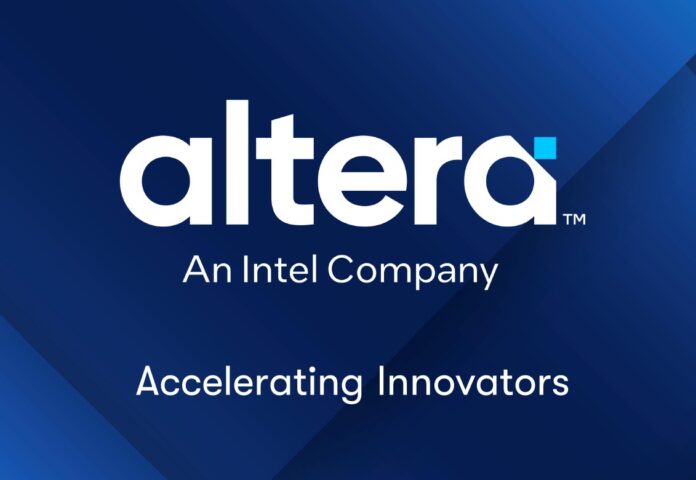
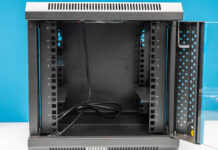


What node are they using for Agilex 3? Have they moved beyond 14nm?
I don’t know anything about FPGA engineering – are there unique considerations or constraints that shape which process nodes they can use? They always seemed to be one or two generations behind, but I assumed that was due to their smaller market, production runs.
Relatedly, does anyone know what happened to the Mill CPU project? I think they were using FPGAs or DSPs, had some kind of programming model that was key.